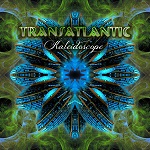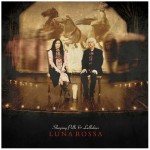In the editorial of Classic Rock Magazine, Scott Rowley asks “Is Rock Dying”
“Rock’n'roll has died,” former Buckcherry bassist Jimmy Ashhurst Facebooked recently, “and nobody’s really that pissed because we caught it in a box and can look at it whenever we want.” Ginger Wildheart posted similar sentiments days after the Sonisphere headliners were announced. “It would appear that rock music is finally on the machine that goes bing,” he wrote. “The revolving door of (fewer than 10) worthy festival headliners indicates, to me anyway, that we have outlived the era of ‘big rock’.”
The cracks aren’t just beginning to show, they’re as wide and deep as the lines on Keith Richards’ face. The legends are getting older and, let’s face it, dying. In a decade’s time, can we reasonably expect to see tours from Bob Dylan (aged 72), the Rolling Stones (oldest member: 72), Motörhead (Lemmy is 68), Lynyrd Skynyrd (Gary Rossington: 62) or ZZ Top (Billy Gibbons: 64)? Who will fill the country’s stadiums, headline our festivals and fill our arenas then?
One problem is that many classic rock fans are just too conservative, expecting pastiches of their old heroes rather than giving bands with a newer sound a chance. Another is a “mainstream” pushing too much watered-down mediocrity and calling it “rock”. And the rock/indie tribal divide has a lot to answer for as well. How many of the people complaining that rock is dying also insist that Muse are not a rock band?
If rock is to have a future, it won’t sound like copy of its past. I’m sure that there’s a place for exciting new rock bands who have ambitions of being more than glorified Thin Lizzy tribute acts. When I hear young bands such as Haken, I’m sure rock does have such a future.
Whether any of these bands will be part of the mainstream in the same way Led Zeppelin and Pink Floyd were in the 1970s remains an open question. Artists like Steven Wilson, Opeth and Nightwish can fill venues like The Royal Albert Hall or Brixton Academy, but their music is probably too dense and sophisticated for the average daytime radio listener. Do they not represent the real present and future of rock, free from having to confirm to mainstream fashion?
In the end, if ambitious and creative bands can find a big enough audience for them to continue making music on the scale that they want to make it, does it actually matter whether it’s on the mainstream radar or not?

 “Eximius Humanus” is the second album by York-based metal/hard rock five-piece Morpheus Rising, funded through a successful Kickstarter campaign.
“Eximius Humanus” is the second album by York-based metal/hard rock five-piece Morpheus Rising, funded through a successful Kickstarter campaign. There are many bands within the progressive rock scene who take a modernised streamlined approach to the genre, stripping out the fabled self-indulgent excesses to make their music relevant for a new generation of listeners.
There are many bands within the progressive rock scene who take a modernised streamlined approach to the genre, stripping out the fabled self-indulgent excesses to make their music relevant for a new generation of listeners.







 Somehow I don’t think many regular readers of this blog will be surprised at my album of the year. When I get comments asking what Panic Room would have to do to get a bad review, and get members of the band quoting those comments to me, I’m probably guilty as charged of being a fanboy. So don’t just take my word for it. There are many, many other people who agree that this is a stunningly beautiful work.
Somehow I don’t think many regular readers of this blog will be surprised at my album of the year. When I get comments asking what Panic Room would have to do to get a bad review, and get members of the band quoting those comments to me, I’m probably guilty as charged of being a fanboy. So don’t just take my word for it. There are many, many other people who agree that this is a stunningly beautiful work.